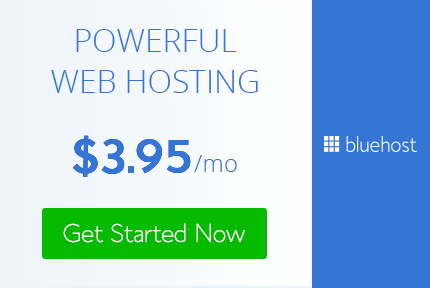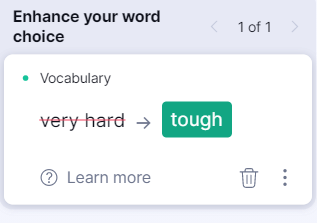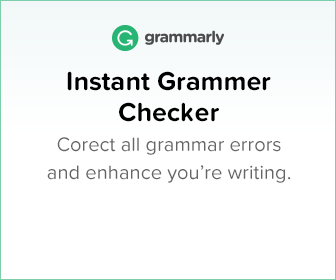13 Proven Ways to Learn Coding Faster
Beginner's Friendly Programming Guide - Curated By Stanley Udegbunam
Thinking of Fast Tracking Your Learning Processes?
This is what you stand to gain from this programming guide.
- A Smart Approach to coding
- Hands-on Approach for Beginners
- Actionable coding tips with in-depth Explanation
- Best coding Resources
- Leveraging coding communities.
THIS POST MAY CONTAIN AFFILIATE LINKS, MEANING I RECEIVE A COMMISSION FOR PURCHASES MADE THROUGH THESE LINKS, AT NO COST TO YOU. PLEASE READ MY DISCLOSURE FOR MORE INFO.
13 Proven Ways to Learn Coding Faster
- Pick a coding niche
- Find out what to learn for the selected programming path
- Learn the basics of the underlying programming language
- Watch a course about building a simple project with the language learned
- Build a simple project without a course
- Start using Stack Overflow
- Learn in details about Git and GitHub
- Watch course about building a more complex project
- Build a complex project without a course
- Get a Coding Mentor
- Get involved with communities
- Share your work
- Read Coding books, Listen to Podcasts and partake in Coding Challenges/Quizzes
Ready to dive right in?
Don’t worry; I’ll take it one step at a time.
Without further ado, let’s get started.
1.
Pick a Coding Niche
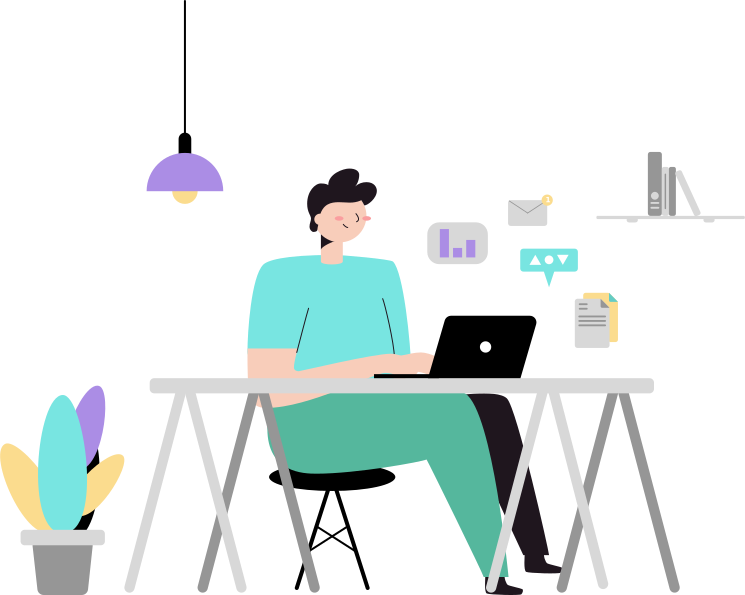
This is the start off point in coding.
A coding niche is an aspect of programming that interests you enough to define your career path.
It can be web development, mobile development, gaming, or embedded systems.
You might be fascinated by every aspect of programming, but it’s advisable to choose the development path that interests you the most.
Use the points below to determine your coding niche.
- If you are interested in building websites, pick web development.
- Fascinated about developing android or iOS apps? then go with mobile development.
- And if you are more inclined to artificial intelligence, virtual reality and the likes, then embedded system is the way to go.
You can go further by checking up these career paths online to know the difference between the options.
Don’t just jump into programming without deciding your coding niche.
2.
Find out what to learn for the selected programming path

Finding out what to learn doesn’t mean you should start learning the technologies involved already.
You are expected to conduct personal research to determine the underlying programming Language, theoretical concepts, and frameworks behind the selected technology.
For Web Development, the underlying languages are HTML, CSS and Javascript, PHP, MySQL.
For Mobile Development, the underlying languages are Java, C+, kotlin, GO.
Don’t use YouTube for this research to avoid getting overwhelmed.
Google is all you need at this phase.
Type in a key search phrase like…
“Getting started with [insert chosen programming niche].”
You get the idea now.
Get to know what’s involved, a little bit about how it works but not really how to implement it.
The goal of this research is that when you’re done with this research, you can explain what this technology is to someone in a way that they can understand it.
This means you have a fairly deep idea of what this technology is even though you really don’t know how to use this idea yet.
3.
Learn the basics of the underlying programming language

To do this, find a source you are comfortable with.
This can be a free web programming platform, Youtube or a paid learning platform.
They are resourceful websites where you can learn the basics of programming for free.
I’ve handpicked the top 3 free coding websites for you. They include:
- W3Schools.com
- Codeacedemy.com
- FreeCodeCamp.org
Visit any of your choices and get started with the basic language from your research, as discussed in step 1 above.
You don’t need any experience or knowledge to learn how to code.
You can be a complete novice or someone who knows nothing about computers, but that doesn’t matter.
Some people prefer watching video tutorials, while some folks like me don’t mind combining both.
Here are the top 3 YouTube channels for getting started with Programming.
- FreeCodeCamp.org
- Clever Programmer
- Programming with Mosh
To learn coding from any YouTube channel, head to the channels playlist section and check if they have a video playlist of the language you wish to learn.
Keep in mind that the coding language here is the one obtained from step 1.
Most of these channels have many other enticing and alluring videos that can capture and steal your attention within seconds.
Though educative, they are mini-distractions. Overlook all these and go straight to the point.
The earlier you get started with the basics, the better for you.
Don’t try to learn any programming frameworks and libraries when starting.
Ohh, I can hear someone say: “Programming Frameworks and libraries are good to learn because they make the work easier.”
True to an extent, but certainly not for beginners.
Frameworks and Libraries are built around core languages and trying to jump into a framework when starting is like learning grammar and spelling without learning the 26 letters of the alphabet.
Focus on just the basics and every other thing will gradually fall in place.
There are also paid programming platforms like:
Udemy, Udacity, Team treehouse and Coursera, where coding courses are perfectly structured to achieve the needed goal.
If you feel you’re better off with a paid platform for accountability reasons/community support,
I’ll suggest you go with Team Treehouse because it’s designed to make you committed to everyday code when starting for 100 days.
They try to keep you on track through scheduled email reminders and offer a complimentary podcast.
But if you don’t have the bucks to spend on courses, go ahead and begin with the free ones stated above and you’ll also do fine.
Whether you are using a free or a paid platform, your success in coding is determinant by three major factors.
- Zeal
- Consistency
- Practice.
4.
Watch a course about building a simple project with the language learned

It’s time to get your hands dirty with real projects.
This step is crucial to understand any kind of language and getting involved in projects is what differentiates real programmers from the crowd.
Have you ever heard of the phrase “Tutorial Hell”?
Tutorial hell is a common phenomenon where programmers fall into the rat race of learning endless tutorials in the pursuit of perfection without getting involved in actual coding projects.
They keep on learning and learning because they feel they are not yet good enough to embark on a project.
The best way to learn to code fast is to build as many projects as you can and you don’t need to be a pro to do this.
How long should you learn the basics of programming before building projects?
After 3 months of constant learning, you can start trying out projects.
If you’re learning with a free programming website, head over to YouTube and search for a simple project on the topic.
But if you purchased Team treehouse programming course, make sure to try out their projects and quiz.
I know beginners always skip course projects and quizzes because they are always in a hurry to complete courses as quickly as possible and when they can’t, they lose the will to learn and give up.
They forget that programming is an incremental and practical process and if you don’t understand how everything fits, you’ll always be lost.
Don’t do that, else you’ll find yourself in tutorial hell.
However, if you want to learn to code faster, never limit yourself to only projects from learning platforms.
Head over to YouTube and get your hands deeply soiled with coding projects.
Undoubtedly, tutorials are a great way to learn, but you need the right balance between tutorials and building projects.
A solid “tutorial-to-project” ratio is:
20% tutorials
80% building projects
5.
Build a simple project without a course

Yeah, you heard me right.
You’ve earlier built a simple project by watching a course.
Now it’s time to build a simple project without a course.
“Okay, Stan, but how do I come up with a project.”
Simple. Just formulate anything similar to your previously completed project.
This is the time to get creative.
It necessary doesn’t have to be something out of the blues.
And don’t try to think of a new or mind-blowing app or website idea so you don’t get stuck along the way.
Just something simple.
The project must be built without following a tutorial.
Of course, you can google or check things up on Stackoverflow or YouTube whenever you encounter a problem.
Therefore building a project without a course doesn’t necessarily mean coding from start to finish without consulting any resources but rather, it means:
- Formulating your own project and
- Relying on helpful resources in the least way possible when trying to fix coding issues
Most coders will feel stuck somewhere on their path, which is totally normal.
But the mistake is almost always the same: too many tutorials, lack of practice.
To learn coding faster, build as many projects as you can.
6.
Start Using Stack Overflow
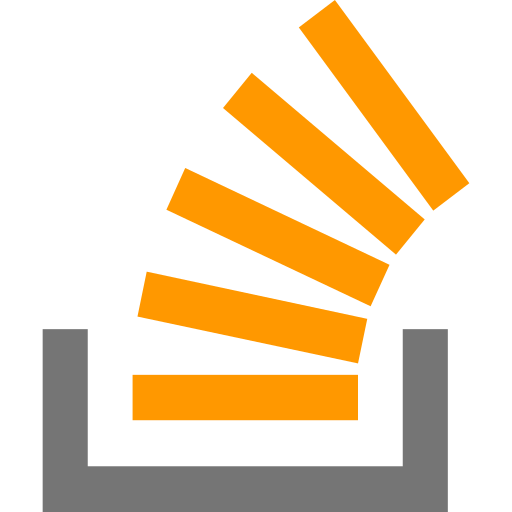
Platforms like Stack Overflow are indispensable tools to programmers.
To resolve any problem related to coding, start using Stack Overflow community.
You can easily get actionable solutions to code errors.
Stop trying to remember every single line of code.
You don’t need to keep everything in memory that you learn.
Do you really think programmers become skilled in their craft by memorizing every single line of code?
Not at all. Your ability to use Google and Stack Overflow to read someone’s else code and draft a meaningful solution to your queries is what makes you a good and efficient programmer.
When using Stack Overflow, always keep this in mind:
Don’t just copy and paste codes, strive to understand how it works and why it works.
7.
Learn in details about Git and GitHub
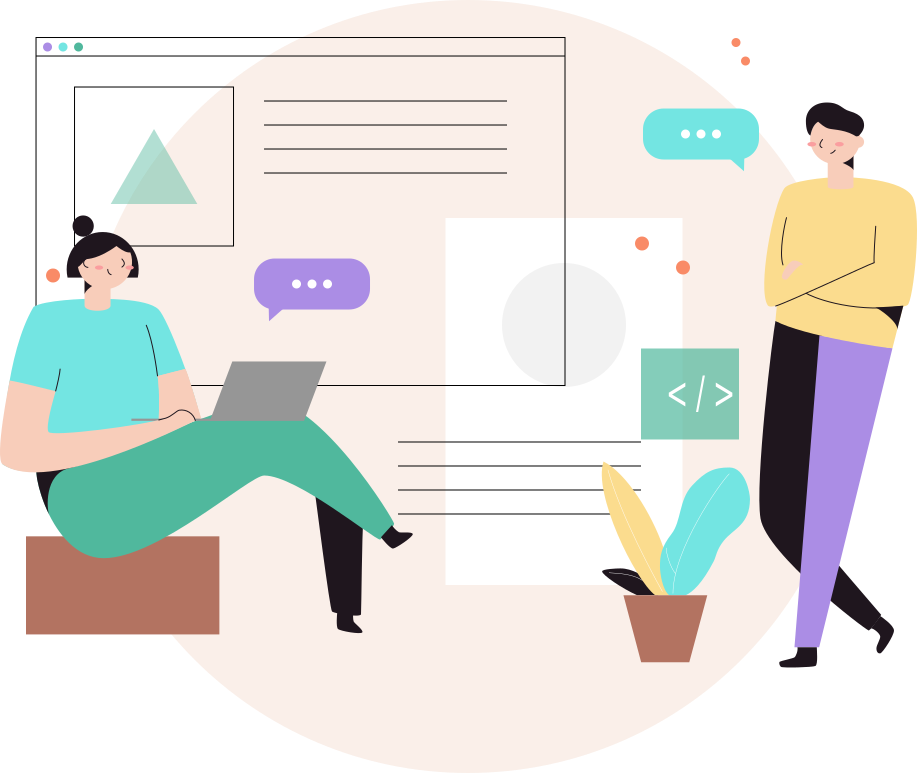
Git is a free version control system that allows you to manage and track your source code history.
GitHub is a cloud-based hosting service for version control collaboration.
In other words, GitHub is designed to manage open-source projects that use Git.
GitHub may simply be a platform for most beginners to upload code, but it’s much more than that.
It can easily be used as a collaboration platform among coders and also to build complex systems.
Should a beginner use GitHub?
Definitely, apart from just uploading codes, a beginner programmer can use GitHub for project management and as a collaboration platform among other coders.
Can I use GitHub to learn coding?
Although you can find documentation of any language, framework or project on GitHub, it’s not a good place to learn or practice coding.
It would be best to go to a website dedicated to coding like W3shools, Codecademy and Team Treehouse.
Beginners use GitHub to uploading open-source projects while intermediate to advanced programmers try to contribute to the GitHub repository.
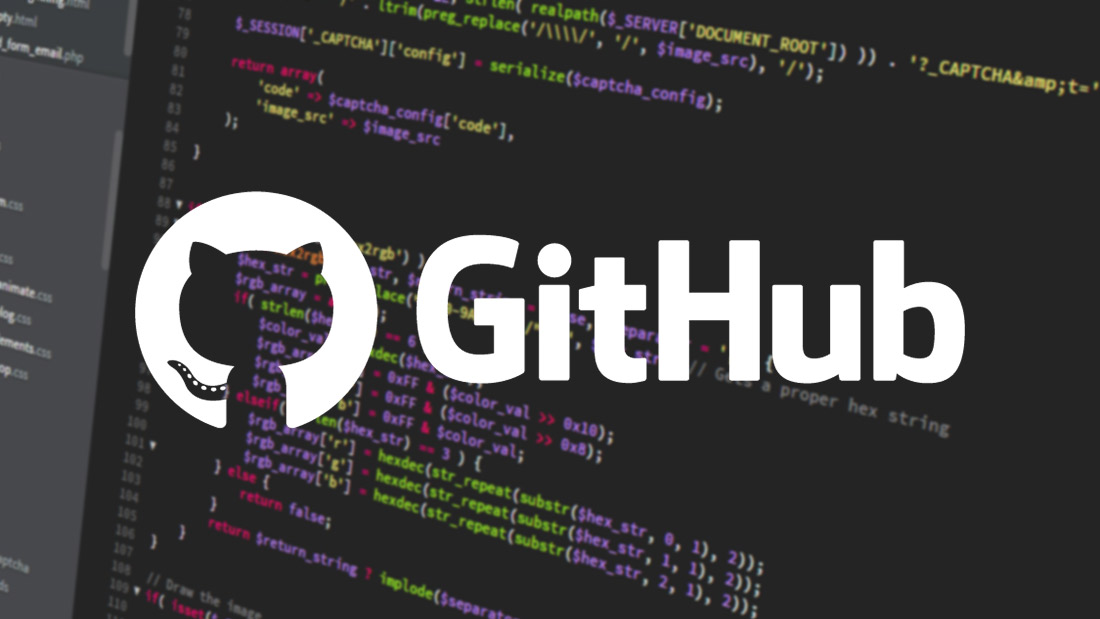
Uses of GitHub
With GitHub you…
- Get to contribute to open-source
- almost always find a project that implements what you want to learn
- directly see how things work in practice
- Become a part of software development in progress
- learn to read other’s code which is a crucial skill for a programmer.
If you’ve learnt the basics of programming language including coding structures and syntax,
you can learn about GitHub and how best to utilize the platform.
8.
Watch course about building a more complex project

You’ve learnt about Stack Overflow and GitHub.
And you’ve earlier built a simple or light project.
Now it’s time to step up the game and build something complex.
If you’ve thought of projects like coding Twitter, Youtube or Slack web-app from scratch, this is the best time to do it.
Though of coding a bot, it’s time to get it rolling.
What are those coding ideas you thought of when starting but felt they were too complex to embark on?
This is the right time to face them squarely and put them in their place.
You don’t have to keep learning for 3 – 5 years before handling complex programming tasks.
With 6 – 9 months of active learning and practice, you are expected to start working on complex projects.
Let curiosity be your driving force.
9.
Build a complex project without a course

Let’s digress a little…
What’s the most complex sporting activity you’ve ever learnt?
Some will say swimming, playing lawn tennis, and gyming.
Let’s take swimming for example.
When starting out, someone guided you with the basic swimming strokes.
It could be a swimming instructor, your sibling or a friend.
After learning the basic strokes, you have to practice on your own for a period of time on shallow heights.
With consistency and track record of improvements, you then proceed again to learn more complex strokes, this time at deeper depths with the help of your instructor.
After which, you have to practice the complex moves alone till you attain proficiency.
Some may decide to keep on learning all year round on shallow waters with baby strokes.
While others might follow a progressive approach till the glorified “complex strokes” become their default move.
This analogy is applicable in coding and any learning sphere of life.
You’ve built a complex project through the help of a course; now it’s time to build one without a course.
Again, it doesn’t necessarily have to be something out of the blues.
But hey, If you can think of something extra-ordinary at this point, you’re free to try it out.
It can also be a project you’ve worked on before but with more added functionalities and features.
You are not just building projects for coding sake, but rather, you are building projects that solve a problem.
Non-programmers think the hard side of coding is the code, but it’s not; the hard bit is knowing how to solve problems.
“In programming, errors are opportunities to be world class.” – Stanley Udegbunam
Handling complex coding projects on your own can make you discouraged and frustrated but never give up.
Embrace your mistakes, learn from them by consulting platforms like StackOveBuild a complex project without a courserflow and Google.
Effect the changes and you are guaranteed to get better progressively.
10.
Get a Coding Mentor

Isaac Newton once said:
“If I have seen further than others, it is by standing upon the shoulders of giants.”
A coding mentor is:
- Someone who has greater experience in your chosen field than you.
- Someone who has walked through the same path and has achieved greater height.
- Someone you look up to and wish to be like further down in your coding career.
A mentor will help save you time that would have been spent on learning unnecessary things, as you’ll get to learn from their years of experience.
It’s okay to have virtual mentors, people in your field that you look up to online.
But I’ll advise you to also get a physical mentor.
This should be someone you can communicate and share your progress with and also obtain advice and guidance when needed.
What if you don’t have such people around you?
How do you get to meet and connect with people who are walking on the same path as you or have once walked through that path before?
The answer is given in the next step.
11.
Get Involved with Communities

Developers Communities are great ways to stay updated with what is happening and the latest news in your field.
You also get to connect with like minds, share ideas and work as a team to achieve a common goal.
One major importance of joining communities is that it offers you the opportunity to know about major conferences surround your software niche.
Attending tech/dev conferences is a great way to ignite your desire to grow and achieve more.
You also get to connect with higher people in your field and if you are active, you might join the team to host the next big tech conference in your region or state.
Do you agree that joining dev communities will help you become a better coder?
Be the judge.
12.
Share your work
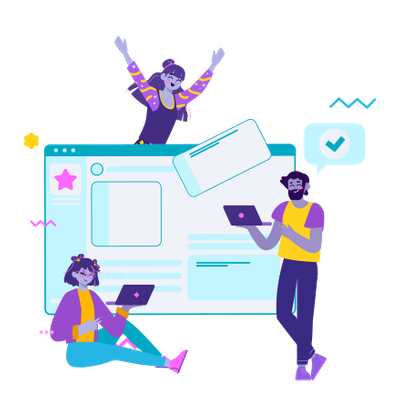
Don’t be a programmer in secret.
Share your work with the public.
You can do this by creating posts on tech-friendly social media platforms like Twitter and LinkedIn.
You can also share case studies on tech-centered networks like Hashnodes.
By so doing, you’ll be fully immersed and equipped with not only coding but also technical and communication skills needed to thrive better as a programmer in an ever-growing society.
13.
Read Coding books, Listen to Podcasts and partake in Coding Challenges/Quizzes

Books for coding
Disclaimer: Studying coding books alone can never make you a good programmer.
However good books will sharpen your understanding and help re-align you with the basic underlying knowledge behind coding.
I always agree with this statement by Jim Rohn: Reading is essential for those to rise above the ordinary.
And as Dr. Seuss outrightly pointed out: The more you read, the more things you will know. The more that you learn, the more places you’ll go.
Here are my 3 favorite coding books needed to give you a competitive edge.
- Clean Code by Robert C. Martin
What costs a lot is not the computer, it’s the human resources, so you better learn to code clean for your projects.
- The Pragmatic Programmer by David Thomas & Andrew Hunt
What you will find in this book is now an integral part of all the programming best practices that get repeated over and over on sites like Stack Overflow, software engineering blogs and whatnot.
- The Mythical Man Month by Fred Brooks
Freed invented the whole field of software engineering with a single book.
See best book on Data Structures and Algorithms.
The good thing about books is that you can always read at your own pace.
Coding Podcasts
You can listen to code-related podcasts during your spare time while traveling or even while taking your early morning coffee.
Here are 3 selected coding podcasts that will help improve your mindset as a programmer.
- CodeNewbie: Inspirational stories on how people get into programming.
- DevChat.tv: This podcast interviews one techy every week and they detail out the recent happenings in tech.
- Learn to code with me: This podcast interviews many self-taught developers and they get to share their experience over the years.
- JS Party: This podcast doesn’t only center on interviews but also conducts code quizzes and analyzes tech news.
Coding Challenges and Quizzes
This is a tactical and fun way to boost your IQ and improve your coding skill.
There are plenty of sites that have practice-type challenges – for instance, the Euler Project and Advent of Code.
- The Euler Project is far more mathematically based, with an emphasis on efficient ways to solve mathematical problems.
- Advent of Code is a chain of 50 programming challenges that call for consideration of both data structure and algorithms.
They also encourage a structured approach to development, with each pair of challenges having the 2nd solution building on the 1st; and also providing testing data that encourages you to develop unit test cases as well as just the raw solution.
Closing Remark On
13 Proven Ways to Learn Coding Faster (In 2021)Learning how to code is no child’s play as you have to be intentional with every step you take.
The time spent accumulating knowledge and technical skill required to become a professional programmer can be drastically reduced if you have access to the right resources.
My advice:
Whatever you learn, find out what belongs to the basics. Then use these to build real projects.
Let this article serve as your entry guide and I hope to see you do exploits in your coding career.


